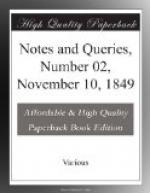Before this time coffee was scarce known in Persia, and very little used in Arabia, where the tree grew. But, according to Schehabeddin, it had been drunk in AEthiopia from time immemorial.
Coffee being thus received at Aden, where it has continued in use ever since without interruption, passed by degrees to many neighbouring towns; and not long after reached Mecca, where it was introduced as at Aden, by the Dervises, and for the same purposes of religion.
The inhabitants of Mecca were at last so fond of this liquor, that, without regarding the intention of the religious, and other studious persons, they at length drank it publicly in coffee-houses, where they assembled in crowds to pass the time agreeably, making that the pretense. From hence the custom extended itself to many other towns of Arabia, particularly to Medina, and then to Grand Cairo in Egypt, where the Dervises of Yemen, who lived in a district by themselves, drank coffee on the nights they intended to spend in devotion.
Coffee continued its progress through Syria, and was received at Damascus and Aleppo without opposition; and in the year 1554, under the reign of Solyman, one hundred years after its introduction by the Mufti of Aden, became known to the inhabitants of Constantinople, when two private persons of the names of Schems and Hekin, the one coming from Damascus, and the other from Aleppo, opened coffee-houses.
“It is not easy,” says Ellis, “to determine at what time, or upon what occasion, the use of coffee passed from Constantinople to the western parts of Europe. It is, however, likely that the Venetians, upon account of the proximity of their dominions, and their great trade to the Levant, were the first acquainted with it; which appears from part of a letter wrote by Peter della Valle, a Venetian, in 1615, from Constantinople; in which he tells his friend, that, upon his return he should {26} bring with him some coffee, which he believed was a thing unknown in his country.”
Mr. Garland tells us he was informed by M. de la Croix, the King’s interpreter, that M. Thevenot, who had travelled through the East, at his return in 1657, brought with him to Paris some coffee for his own use, and often treated his friends with it.




